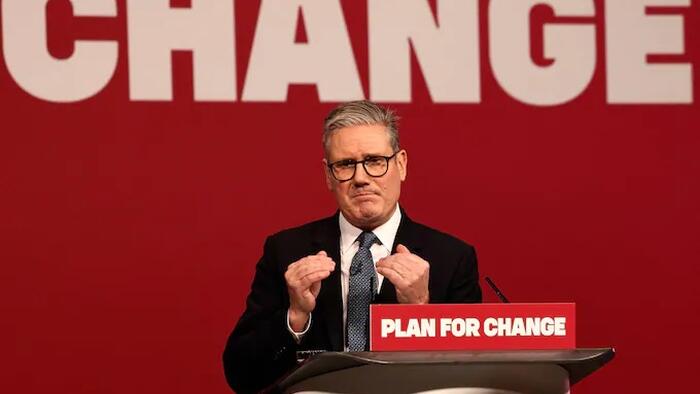In the wake of the 2024 US election campaign, a striking narrative emerged among establishment journalists suggesting that the Constitution and existing voting systems could be facilitating “too much freedom” for the public. This claim, put forth primarily by progressive activists, revolves around the notion that unfettered voter choices can be manipulated through disinformation, leading to an erosion of democratic values. The argument reached a crescendo when it was directed specifically at Donald Trump’s presidential bid, framed by leftists as part of a rising wave of “far-right fascism.” This perspective casts doubt on the viability of the democratic process itself, leading proponents to propose extreme measures to prevent Trump’s potential reelection. While some may view these assertions as mere lamentations of disgruntled voters, they reveal deeper elitist attitudes that threaten the foundations of democracy itself.
What is particularly alarming is the mindset underpinning this “self-destructing democracy” theory. It stems from a belief prevalent among some progressive circles that their ideals represent an unequivocal “greater good.” In their eyes, questioning these views equates to heresy, which positions them as the arbiters of political morality. This form of zealotry is not only counterproductive but also risks warping the democratic process into a tool for maintaining their own power. It leads to attempts to suspend or outright sabotage election integrity, particularly when populist or conservative movements gain traction across various Western nations. This overarching narrative of paranoia towards the right, often stoked by fearmongering rhetoric regarding authoritarian threats like Russia, underlines a greater existential struggle within European democracies, where fear is manipulated to undermine legitimate electoral processes.
The situation in the UK further underscores this pattern, particularly with the British Labour Party’s proposal to delay local elections under dubious pretexts. Amid plunging approval ratings for Prime Minister Keir Starmer and his party, critics have accused Labour of attempting to game the electoral system through a reorganization of local councils. This maneuver, which could postpone elections for up to a year, appears to be a desperate effort to shield the party from further electoral losses in light of waning public support. With many citizens dissatisfied with Starmer’s governance and increasingly aware of his authoritarian tendencies, these tactics could be seen not just as a political strategy but as an admission of the party’s dwindling legitimacy.
Moreover, the Labour Party’s significant unpopularity is largely attributed to Starmer’s alleged crackdown on free speech and stifling of dissent, particularly regarding policies surrounding immigration. The suppression of public debate and dissenting opinions creates a climate of fear, which fundamentally contradicts the progressive narrative of being the champions of democracy. The disillusionment among voters is palpable; with a sizeable percentage expressing dissatisfaction with the Labour leadership, the party finds itself grappling with the implications of its authoritarian approach to governance. The potential backlash from the electorate poses a formidable challenge for Labour, revealing the inherent risks of trying to maintain power through the erosion of democratic principles.
As the influence of populist parties like Nigel Farage’s Reform Party continues to grow, the progressive agenda risks facing significant disruption. This emerging political landscape represents a critical counterbalance to the mainstream left, advocating for transparency and accountability in governance. The Reform Party’s rise underscores a growing public sentiment against the imposition of progressive policies perceived as detrimental to national interests, particularly concerning immigration and civil liberties. As more voters align with these alternative voices, the establishment left is forced to grapple with a reality it has long sought to obscure—the electoral battlefield is not solely theirs to dictate or control.
In a twist of irony, the left’s narrative of being the protectors of democratic ideals becomes increasingly tenuous as they employ authoritarian tactics to quash dissent and maintain their grip on power. Their insistence that the average voter lacks the capacity to make informed choices effectively undermines the very democratic principles they claim to uphold. As discontent with the ruling establishment grows, political elites are confronted with a choice: either engage in genuine democratic dialogue or continue their trajectory towards disenfranchisement and political upheaval. Ultimately, the erosion of trust in the democratic process may lead to calls for a reevaluation of electoral systems and governance, particularly if a significant portion of the electorate feels systematically disenfranchised.
The discourse surrounding democracy and free speech has irrevocably shifted, revealing not only the internal contradictions of progressive politics but also the profound challenges facing democracies around the world. As parties on the left scramble to maintain relevance amid mounting opposition, the specter of authoritarianism looms large. With public trust in political institutions waning and grassroots movements gaining momentum, it remains to be seen whether the lessons of these fraught political climates will lead to a renewed commitment to democratic ideals or a further descent into elitism and authoritarianism. Without introspection and genuine commitment to facilitating an inclusive political dialogue, the survival of democracy itself may hang in the balance.

